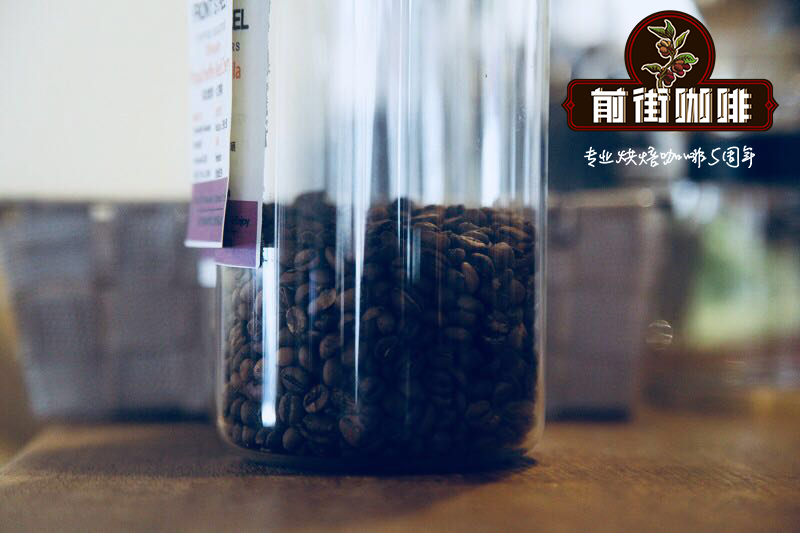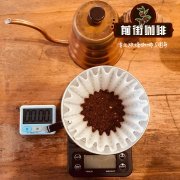Jamaica Coffee RSW Blue Mountain Coffee brief introduction to Jamaican Coffee varieties planting sea cup score test flavor

Professional coffee knowledge exchange more coffee bean information please follow the coffee workshop (Wechat official account cafe_style)
Jamaican coffee beans have a long history. In 1728, the then British Governor Nicholas Lowe Sir Nicholas Lawes imported coffee from French Martinique Island to Jamaica. Because the local climate was very suitable for growing coffee beans, Jamaica exported 83000 pounds of high-quality coffee nine years after its introduction. The Blue Mountain Coffee producing area is located in the east of Jamaica. Only those growing in this area at an altitude of 3000 to 5500 feet are authentic [Jamaican Blue Mountain Coffee] (Jamaica Blue Mountain). Other coffee growing at an altitude of 1500 to 3000 feet can only be called [Jamaican Alpine Coffee] (Jamaica High Mountain). Coffee grown below 1500 feet above sea level is [Jamaica's preferred coffee beans] (Jamaica Supreme) or [Jamaican low-altitude coffee beans] (Jamaica Low Mountain). Coffee is not allowed in conservation forests above 5500 feet.
The serious efforts made by the Government of Jamaica were mainly to increase coffee production and to build a central coffee processing plant to facilitate coffee treatment and raw bean grading, which did improve the quality but not very successfully. Canada, the largest buyer of Jamaican coffee in 1943, still could not accept this quality. In 1944, the Jamaican government set up a central coffee [water] treatment plant, where all coffee to be exported had to be processed and graded. The Jamaican Coffee Authority was established in June 1950 and the state is officially responsible for the quality of coffee beans for export. There are currently five government-certified 100% Blue Mountain Coffee processing plants: Wallenford,Mavis Bank,Old Tavern Old Inn, Silver Hill,Moy Hall.
Blue Mountain Coffee is a high-quality Caribbean coffee, which, like other countries, has been damaged by natural hurricanes. I have seen too many damaged bean cups and the taste of kale. Prices are always affected or even unmarketable in years hit by hurricanes. In addition, the hot and humid environment of island countries often makes coffee moth-eaten or white spots, and coffee beans with real zero defects are always rare. Coupled with the Japanese purchase of 70% of the Blue Mountain Coffee makes the price high, the real high altitude 100% pure Blue Mountain Coffee is produced through the Jamaican national processing plant, the coffee is packed in a special barrel and there is a certificate on each barrel.
RSW Blue Mountain Coffee is composed of three local coffee estates Resource, Sherwood Forest, and Whitfield Hall in the Blue Mountain region of Jamaica. It is the most stable and best quality of Blue Mountain Coffee. Each manor has a history of more than 1800 years. The owner of the Blue Mountain Coffee worked together to create a legend of barreled Blue Mountain Manor brand coffee a few years later. RSW only deals with coffee produced by its own manor group and will never buy beans from other estates. They mainly use the Sherwood Coffee processing Plant (built before 1800) as their exclusive processing plant, where coffee cherries from the three estates are sent for processing, and the freshly harvested coffee cherries are placed in a humidity-controlled storeroom, with great care in every detail of the process, so that they can provide buyers with the best Blue Mountain coffee.
Property Characteristics: farm characteristics
Jamaica Coffee Manor: composed of three estates in RSW Estates RSW
Grade grade: Certified 100% Blue Mountain official certification 100% Blue Mountain Coffee
Region producing area: Blue Mountain Blue Mountain
Country country: Jamaica Jamaica
Mark marked: Sherwood Coffee processing Factory
Altitude altitude: 3000ft 5500ft
Coffee Characteristics: coffee characteristics
Varietal Variety: Jamaica Blue Mountain Cultivar cultivated in the Blue Mountains of Jamaica
Processing treatment method: Wet-processed washing method
Appearance appearance: 0 d/300gr, 18 Screen (0 defect / 300g, 18 eyes)
Top Jury Descriptions comment: the baking degree (Cinnamon) measured by the cup at the beginning of 60 seconds of explosion.
Aroma / flavor flavor: cereal, alpine oolong tea, jasmine, chamomile, flowers, brown sugar, honey
Acidity: very fresh, clean, pink, citrus, green malic acid, mild to moderate acidity
The complexity of complex is similar to that of other: smooth and gentle, balanced and soft, delicate and delicate, mellow taste, long fragrance of flowers, and the remaining rhyme is not converted into sweetness until the middle part.
Cup Test score and overall Review of Jamaican Coffee
Cup test date: 2011.08.13
Dry aroma: 9
Wet aroma: 9
Clean: 10
Brightness: 9
Taste: 10
Balance: 9
Complexity: 9
Sweetness: 9
Acid quality: 9
Yu Yun: 10
Jamaican coffee cup test score: 93
Overall comment: RSW Blue Mountain Coffee is of very good quality, accounting for only 1% of all Blue Mountain Coffee production, which can only be bought in certain boutique coffee shops, and only some of these 1% will be sold to specific coffee buyers. This supply is really very limited. This is the fresh floral fragrance in the mild and balanced flavor of the newly harvested RSW Blue Mountain Coffee in 2011.
Important Notice :
前街咖啡 FrontStreet Coffee has moved to new addredd:
FrontStreet Coffee Address: 315,Donghua East Road,GuangZhou
Tel:020 38364473
- Prev

Introduction of Ecuadorian Coffee Variety Science Popularization Ecuador Organic Coffee production characteristics and Flavor
Professional coffee knowledge exchange more coffee bean information please follow the coffee workshop (Wechat official account cafe_style) Ecuadorian coffee treasures from the hometown of giant turtles Ecuador Galapagos Islands organic coffee "first grade" EcuadorGalapagos is located in Ecuador Galapa in Ecuador
- Next

Brazilian Santos Coffee Variety characteristics Flavor characteristics Brazilian Santos caffeic acid
Professional coffee knowledge exchange more coffee bean information Please follow the coffee workshop (Wechat official account cafe_style) varieties come from South America Brazil is the world's number one coffee producer, accounting for about 30% of the world's total production. Almost all Brazilian Santos coffee is produced in southeastern Brazil and is the best of Brazilian coffee. Raw bean granules can be found from medium to large, but without green, belonging to medium
Related
- Detailed explanation of Jadeite planting Land in Panamanian Jadeite Manor introduction to the grading system of Jadeite competitive bidding, Red bid, Green bid and Rose Summer
- Story of Coffee planting in Brenka region of Costa Rica Stonehenge Manor anaerobic heavy honey treatment of flavor mouth
- What's on the barrel of Blue Mountain Coffee beans?
- Can American coffee also pull flowers? How to use hot American style to pull out a good-looking pattern?
- Can you make a cold extract with coffee beans? What is the right proportion for cold-extracted coffee formula?
- Indonesian PWN Gold Mandrine Coffee Origin Features Flavor How to Chong? Mandolin coffee is American.
- A brief introduction to the flavor characteristics of Brazilian yellow bourbon coffee beans
- What is the effect of different water quality on the flavor of cold-extracted coffee? What kind of water is best for brewing coffee?
- Why do you think of Rose Summer whenever you mention Panamanian coffee?
- Introduction to the characteristics of authentic blue mountain coffee bean producing areas? What is the CIB Coffee Authority in Jamaica?

